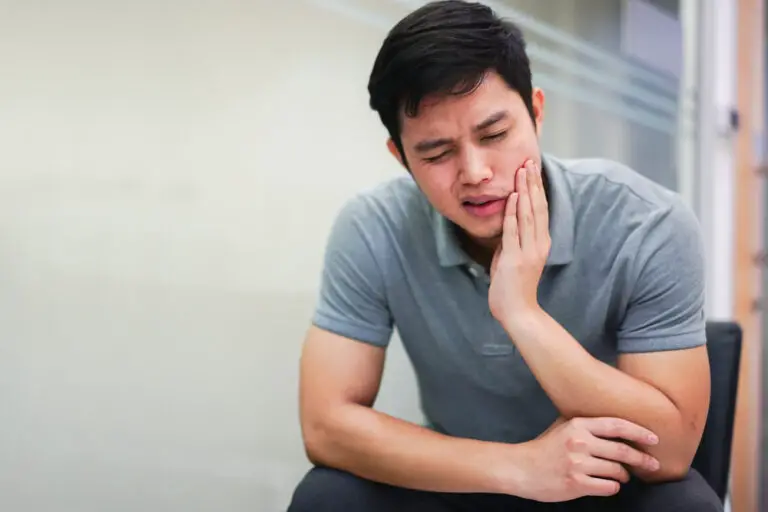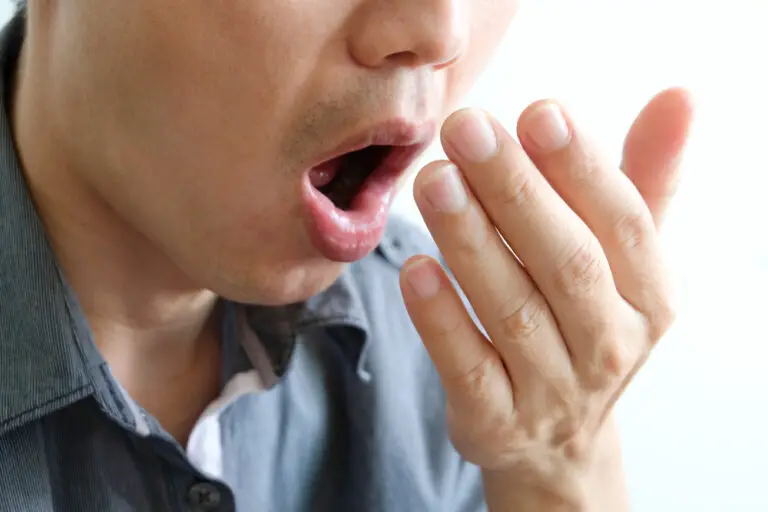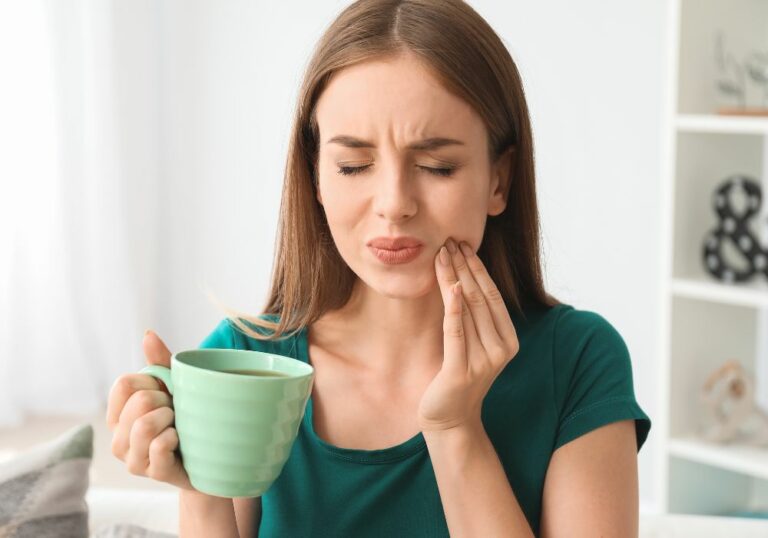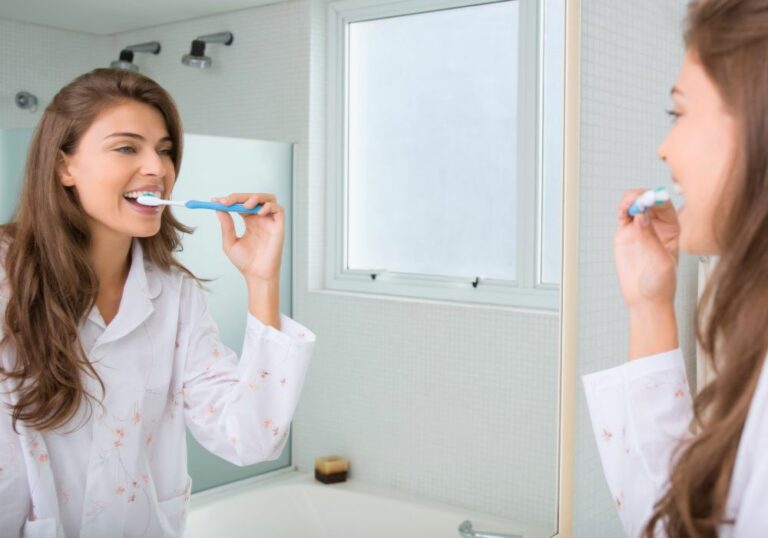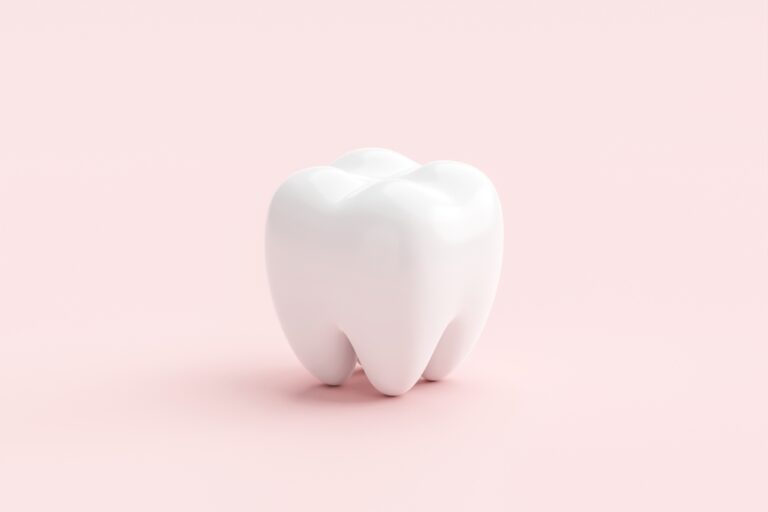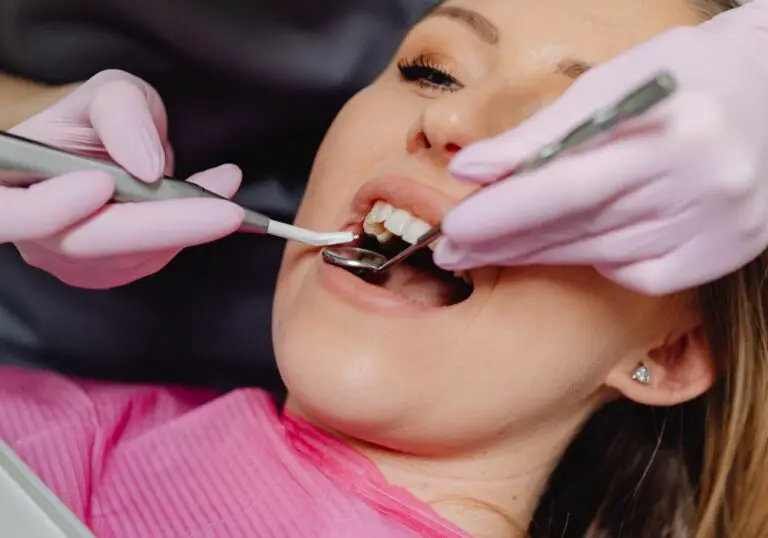Have you ever woken up with a dull headache and sore jaw? Have you noticed mysterious chips or cracks appearing on your teeth? Does your partner complain about loud grinding sounds from you at night? If you answered yes to any of these questions, you may have a common condition called bruxism.
Bruxism refers to habitual grinding or clenching of the teeth. It can occur during sleep or while awake. Studies estimate that 8-31% of adults experience some degree of bruxism. Many people are unaware they grind their teeth until dental damage accumulates or pain develops.
Teeth grinding puts abnormally high forces on the teeth and jaw joints. This can erode tooth enamel, fracture teeth, wear down surfaces, loosen teeth, and strain the temporomandibular joints. Frequent headaches are another problematic symptom of bruxism.
The causes of bruxism are not fully understood but involve factors like stress, genetics, sleep disorders, medications, and dental occlusion. There are ways to manage bruxism ranging from mouth guards and bite splints to botox injections and behavior modification. Catching the problem early and protecting your teeth is important.
What is bruxism?
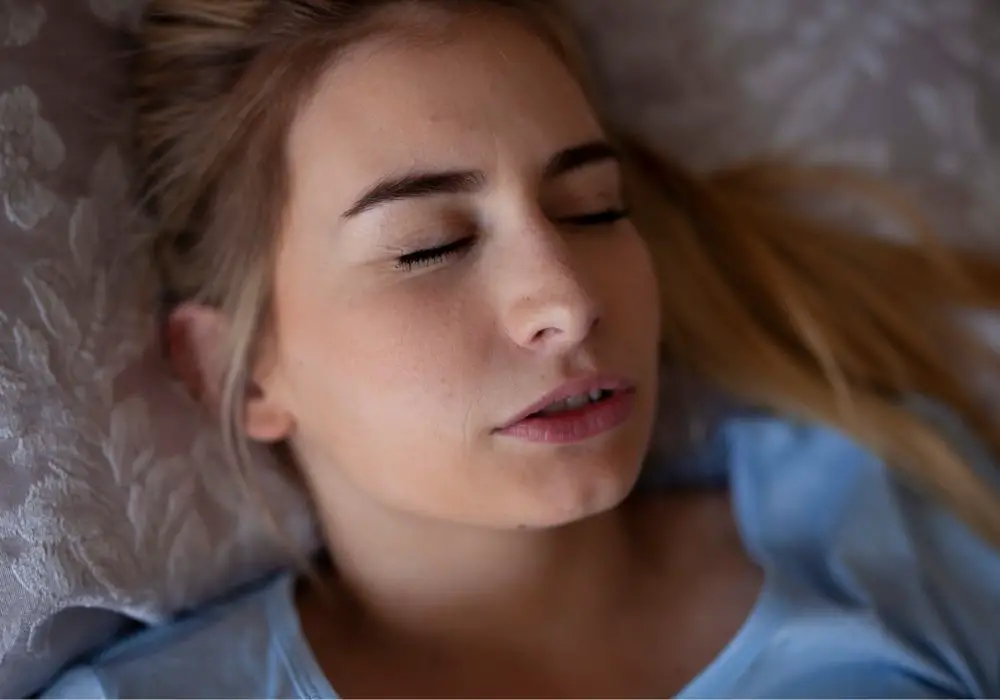
Bruxism refers to the grinding of teeth or jaw clenching. It includes grinding teeth during sleep, called sleep bruxism, as well as grinding that occurs while awake, called awake bruxism. Bruxism is very common, with estimates ranging from 8-31% of adults grinds their teeth to some degree.
Bruxism can lead to a number of oral health complications:
- Worn down teeth
- Chipped or cracked teeth
- Loose or sensitive teeth
- Sore or painful jaw muscles
- Headaches or earaches
- Damage to dental work like crowns or fillings
Types of bruxism
There are two main types of bruxism:
Sleep bruxism
Sleep bruxism occurs during sleep, often unconsciously. Signs include:
- Waking up with sore or tired jaw muscles
- Jaw pain or tightness in the morning
- Headaches upon waking up
- Flattened, fractured, chipped or loose teeth
- Wear on the teeth surfaces
- Jaw locking upon waking
- Bedpartner reporting grinding noises at night
Sleep bruxism episodes can occur throughout the night but often occur during periods of arousal from deep sleep. Factors like stress, alcohol, medications, and sleep disorders can increase bruxism at night.
Awake bruxism
Awake bruxism occurs while conscious, often triggered by concentration, stress, anxiety or other emotions. Signs include:
- Awareness of clenching or grinding during the day
- Sore or tired jaw muscles in the evening
- Jaw stiffness, tightness, or pain
- Headaches in the temple region
- Cheek pain
- Clicking or popping jaw joints
Awake bruxism often occurs subconsciously, like when driving or concentrating. It can also occur along with habits like chewing gum or biting nails.
What causes bruxism?
The exact causes of bruxism are not fully understood, but likely involve multiple factors including:
- Stress and anxiety – Bruxism often occurs more during periods of high stress and anxiety. Both conscious and subconscious teeth grinding can be related to stress.
- Aggressive personality – Some research found associations between aggressive personality types and increased bruxism.
- Genetics – Bruxism may have a hereditary component, running in families.
- Medications – Some drugs like antidepressants can cause bruxism as a side effect.
- Sleep disorders – Conditions like sleep apnea may increase bruxism at night. Grinding can also occur after frequent awakenings.
- Alcohol and caffeine – Consuming alcohol or caffeine before bed can trigger episodes of sleep bruxism.
- Smoking – Smoking is linked to increased teeth grinding, especially during sleep.
- Neurological diseases – Disorders like Parkinson’s Disease or Huntington’s Disease may lead to bruxism.
- Malocclusion – Misaligned bites, crooked teeth or abnormal jaw positions may encourage bruxism.
- Digestive issues – Problems like reflux/GERD can sometimes cause teeth grinding at night.
Risk factors for bruxism
Several factors can increase the risk of bruxism:
- Stress, anxiety, depression, anger
- Aggressive, competitive or hyperactive personality
- Age – bruxism is most common in adults ages 20-40.
- Medications like antidepressants, amphetamines
- Sleep disorders such as sleep apnea
- Family history of bruxism
- Smoking and alcohol use
- Excessive caffeine intake
- Neurological or movement disorders
Consequences of bruxism

If left untreated, bruxism can lead to many oral health complications:
1. Worn down teeth
The grinding action slowly wears down tooth enamel and dentin over time. This flattens the top chewing surfaces as well as thins the edges of the teeth near the gums. Worn teeth become hypersensitive and more susceptible to decay.
- Thinning enamel is irreversible since enamel cannot regenerate
- Dentin exposure causes severe sensitivity to hot and cold
- Smooth, flat surfaces have no grooves to trap and clear food debris
2. Chipped or cracked teeth
The intense forces placed on teeth during grinding can lead to chips or cracks in the teeth. These defects weaken the tooth structure and allow bacteria to enter, increasing decay risk.
- Cracked teeth cause sharp pain when biting and pressure
- Bacteria enter fractures and irritate the pulp
- Discoloration at crack lines appears as stains
3. TMJ disorders
Chronic grinding places strain on the temporomandibular joints and surrounding muscles and ligaments. This can lead to pain, clicking/popping of the jaw joints, and TMJ disorders like dysfunction or arthritis.
- Disc displacements prevent smooth joint movements
- Arthritis causes permanent deterioration of joint tissues
- Muscles spasm and limit jaw motion
4. Tooth loss
In severe cases, weakened teeth from bruxism can eventually break or need extraction if decay is extensive. This can lead to lost teeth that require bridges or dental implants to replace them.
- Implants integrate with the jawbone like natural tooth roots
- Bridges use neighboring teeth as anchors to hold a false tooth
- Restorations maintain a full set of teeth for proper chewing and alignment
5. Headaches
Jaw tension, tightness and soreness from grinding can lead to frequent headaches, especially in the temples. Headaches may be more prevalent in the mornings.
- Temporal headaches feel dull, aching and spread
- Migraines involve severe throbbing pain
- Jaw tension refers pain along cranial nerves
6. Sleep disruption
Loud grinding noises during sleep bruxism can interrupt the sleep for both the patient and their bed partner. This leads to poor sleep quality, daytime fatigue and irritability.
- Noises disrupt the natural stages of sleep
- Both partners end up tired the next day
- Concentration, memory and mood are affected
How do I know if I grind my teeth?
Here are some of the most common signs and symptoms that may indicate teeth grinding:
- Jaw soreness, tightness or pain upon waking
- Headaches, especially in the temples, upon waking
- Wear patterns on tooth surfaces and edges
- Increased tooth pain or sensitivity
- Clicking, popping jaw joints
- Earache or pain without infection
- Damage to dental work like crowns
- Partner noticing grinding noises at night
Keep in mind that awake bruxism often occurs without the person realizing it. Speak to your dentist if you notice any suspicious wear patterns on your teeth.
When to see a dentist
See your dentist right away if you notice any symptoms of bruxism. Early intervention can help prevent complications.
You should visit the dentist regularly for examinations to check for:
- Unusual wear patterns on teeth
- Small fractures in teeth
- Excessive tooth sensitivity
- Sore or tense jaw muscles
- Clicking/popping in jaw joints
Your dentist may have you wear a night guard to protect your teeth from grinding. For severe bruxism, they may recommend physical therapy, stress reduction, Botox or oral appliances.
How is bruxism diagnosed?
Bruxism is typically diagnosed based on a combination of:
- Clinical exam – The dentist checks for signs like unusual wear patterns, cracks, etc.
- Patient history – Asking about symptoms like jaw pain, headaches, grinding noises at night.
- Sleep study – An overnight sleep lab can monitor for episodes of sleep bruxism.
- Home sleep study – Small wearable devices can now detect bruxism at home.
- Questionnaires – Standardized surveys help assess likelihood of bruxism.
How is bruxism treated?
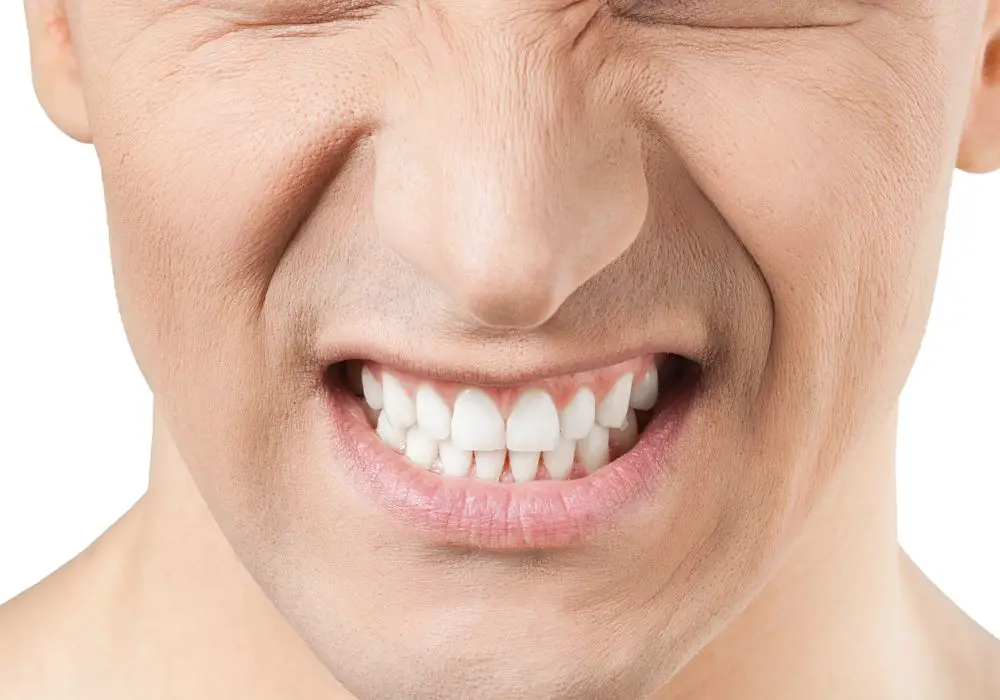
Treatments for bruxism aim to protect the teeth from damage, reduce jaw pain, prevent complications, and manage contributing factors:
1. Dental guard
Wearing a custom night guard or splint provides a protective barrier between the upper and lower teeth to absorb some of the grinding forces and minimize tooth wear and fracture. Guards can be worn during sleep or awake hours when grinding occurs.
- Made from durable acrylic resin materials
- Exact fit over teeth using dental impressions
- Shock-absorbing and cushioning
2. Botox
Botox injections into the chewing muscles can partially paralyze and relax the muscles to reduce grinding. Effects last about 3 months before further injections are needed.
- Temporarily limits muscle contractility
- Reduces muscle tension and pressure
- Requires repeated application
3. Stress management
Managing factors like stress, anxiety, and anger with techniques like CBT, meditation, exercise, etc can help reduce bruxism episodes.
- Addresses emotional triggers for grinding
- Relaxation techniques to moderate stress response
- Improves coping abilities
4. Behavior modification
Making conscious efforts to rest the jaw, avoid chewing gum, and stop daytime grinding habits can help minimize bruxism damage.
- Break unconscious habits
- Stop other oral activities like nail biting
- Keep tongue rested against palate
5. Physical therapy
Strengthening jaw and neck muscles through targeted exercises can help reduce jaw pain and tension from bruxism.
- Stretches tight muscles
- Massage relieves muscle knots
- Posture correction takes pressure off TMJ
6. Orthodontics
In some cases, correcting severe malocclusions with orthodontics may help reduce grinding risks.
- Resolves improper bite relationships
- Aligns teeth for balanced contacts
- Jaw positioners can be incorporated
7. Oral appliance
Custom oral appliances that reposition the jaw can help reduce grinding in some patients.
- Repositions the jaw and TMJ
- Improves occlusion and function
- Reduces muscle strain
8. Medications
Certain drugs like muscle relaxants or dopamine agents may be prescribed in some cases, often as a temporary measure.
- Helps muscles unwind and reduce spasms
- Some effects on underlying neurotransmitters
- Side effects possible with long-term use
Home remedies and lifestyle changes
There are several home remedies and lifestyle changes than can help reduce bruxism:
- Avoid caffeine, alcohol and smoking – All of these can make bruxism worse.
- Practice stress management – Try yoga, meditation, counseling, etc.
- Apply warm compresses and massage jaw muscles – Can help relieve soreness.
- Do jaw stretches and exercises – Helps relax jaw tension.
- Improve sleep habits – Get enough sleep, keep a regular bedtime, reduce noise/lights.
- Train yourself to rest tongue on roof of mouth – Keeps teeth apart.
- Chew sugar-free gum – Helps relax jaw muscles.
- Be aware of daytime habits – Avoid teeth grinding when concentrating.
When to see an orthodontist
See an orthodontist if your dentist suspects that misaligned teeth may be contributing to your bruxism. Signs that orthodontic treatment may help include:
- Overbite – Top front teeth excessively overlap bottom teeth
- Underbite – Lower teeth sit in front of upper teeth
- Crowding – Crooked, overlapping teeth
- Spacing – Gaps between teeth
- Crossbite – Upper and lower teeth misaligned side-to-side
- Open bite – Front teeth do not overlap vertically
Correcting these bite problems may help eliminate an occlusion contributing to bruxism habits. Orthodontic treatment can include braces, clear aligners, headgear or retainers depending on the case.
When to see a TMJ specialist
See a TMJ specialist if you have symptoms like:
- Jaw pain or soreness that persists and does not improve
- Locking open or closed of the jaw
- Clicking, popping or grating of the jaw joints
- Limited jaw movement or trouble opening mouth fully
- Changes in the bite relationship
- Swelling around the jaw joints
- Ringing in the ears or ear pain
A TMJ specialist, like an orofacial pain dentist or physical therapist, can help diagnose and properly treat any TMJ disorders that may develop from severe bruxism.
Frequently Asked Questions
Here are some common questions and answers about teeth grinding and how to stop:
What’s the best thing I can do to stop grinding my teeth at night?
The most effective way to prevent tooth damage from sleep bruxism is to wear a custom fitted night guard or occlusal splint over your teeth. This creates a protective barrier so your teeth grind on the guard surface rather than directly on each other.
Will stopping caffeine help reduce teeth grinding?
Yes, avoiding caffeine from coffee, tea, soda and other sources is recommended to help minimize bruxism. Caffeine is a stimulant that can trigger increased grinding, especially at night.
Can a mouth guard be used during the day too?
Clear plastic daytime mouth guards are available to protect your teeth from awake bruxism. These are similar to night guards but thinner and more discreet. Some people find them helpful for daytime grinding due to stress or habits.
Can Botox injections help treat grinding?
Botox injections into the chewing muscles can temporarily reduce grinding for about 3 months at a time. They may be a treatment option for severe bruxism cases that do not respond to other therapies.
What type of doctor treats teeth grinding and jaw pain?
For teeth grinding concerns, schedule an appointment with your general dentist. For chronic jaw pain or dysfunction, you may be referred to a TMJ specialist or orofacial pain dentist. Physical therapists can also help treat jaw and muscle issues related to bruxism.

